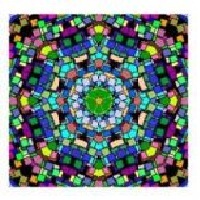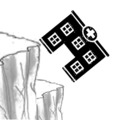Fr James Martin SJ published a post about Szajer's Scandal that is worthy of note. The whole post is published in this blog too.
Dear friends: Here's something I've been thinking about over the past few months, which has been in the news in recent days: Why do so many virulently anti-LGBT public figures, both clergy and lay, turn out to be gay? And why are so many of the most vociferous moral watchdogs revealed as less than moral in private?
Articles like this are common: "Anti-gay Hungarian politician resigns after Brussels police bust 25-man orgy."
https://www.foxnews.com/…/anti-gay-hungarian-diplomat-resig…
Likewise, some of the most virulently anti-LGBT commentators in the Catholic Church publicly describe themselves "ex-gays" or "recovering gays," etc., but hardly seem at peace with who they are. Rather, they seemed filled with anger, forever raging at LGBT people. And this week a priest who had called LGBT people "sodomites" was caught (allegedly) watching gay porn by a security guard in his church.
In fact, I've been asking that of several psychologists over the past few months. Why? Because recently several people who "came out" as gay have apologized to me privately, through Facebook messages, for their vicious attacks on LGBT people, on my LGBT ministry, and on me.
Also, in the past few months, after being attacked either online or in print, I've been told by someone who knows the person, or knew the person in the past, "He's gay, you know." (This happened just this week.) Now, I have no way of knowing if this is true, but it happens often enough, and comes from people who are trustworthy, that it makes one wonder what's going on.
Why is this? It mystified me for a long time.
In response, psychologists tell me that it's easier for someone who is struggling with interior feelings--of shame, hatred or confusion, about their sexuality--to direct it outward, rather than do the hard work of looking at themselves. The anger and self-hatred they may feel is more easily directed outward.
Another reason: fearing the "disorder" in their own interior lives, they seek to impose "order" on the outside, on other people, and sometimes on themselves, and this causes a great internal conflict which leads again to anger, rage and the desire to attack others.
There is also, psychologists tell me, sometimes even a jealousy, again expressed as anger, of those who seem more "integrated" in their sexual lives than they are. Also, they are sometimes afraid of being "outed" and this increases feelings of fear and, again, anger. All these things can combine to produce intense rage.
Two years ago at a talk in Connecticut, after a talk at a church on LGBT Catholics, a well-dressed woman came up to the book signing table and started screaming at me. And I mean screaming, at the top of her lungs, in full view of the other astonished crowd. It continued for four or five minutes, complete with name calling. It was a new experience for me.
So a few days later I asked friend who is a psychologist: "Where does that rage come from?" And she said, "Inside of her. She's probably struggling with something within herself. Feelings of shame or confusion about herself. It's one thing to disagree with someone, but this kind of phenomenon is different. If you can understand that, you'll be able to handle that kind of rage better."
Obviously, not everyone who attacks LGBT people, or is homophobic, is gay or struggling with their own sexuality. But often the most virulent, the most vicious, the most angry, are dealing with something other than a mere intellectual or even moral situation.
In these situations, we can better understand their rage, and while still defending and advocating for LGBT people, we can pray that these attackers come to some peace about themselves and also recognize the immense harm that they are causing with their misplaced rage.



